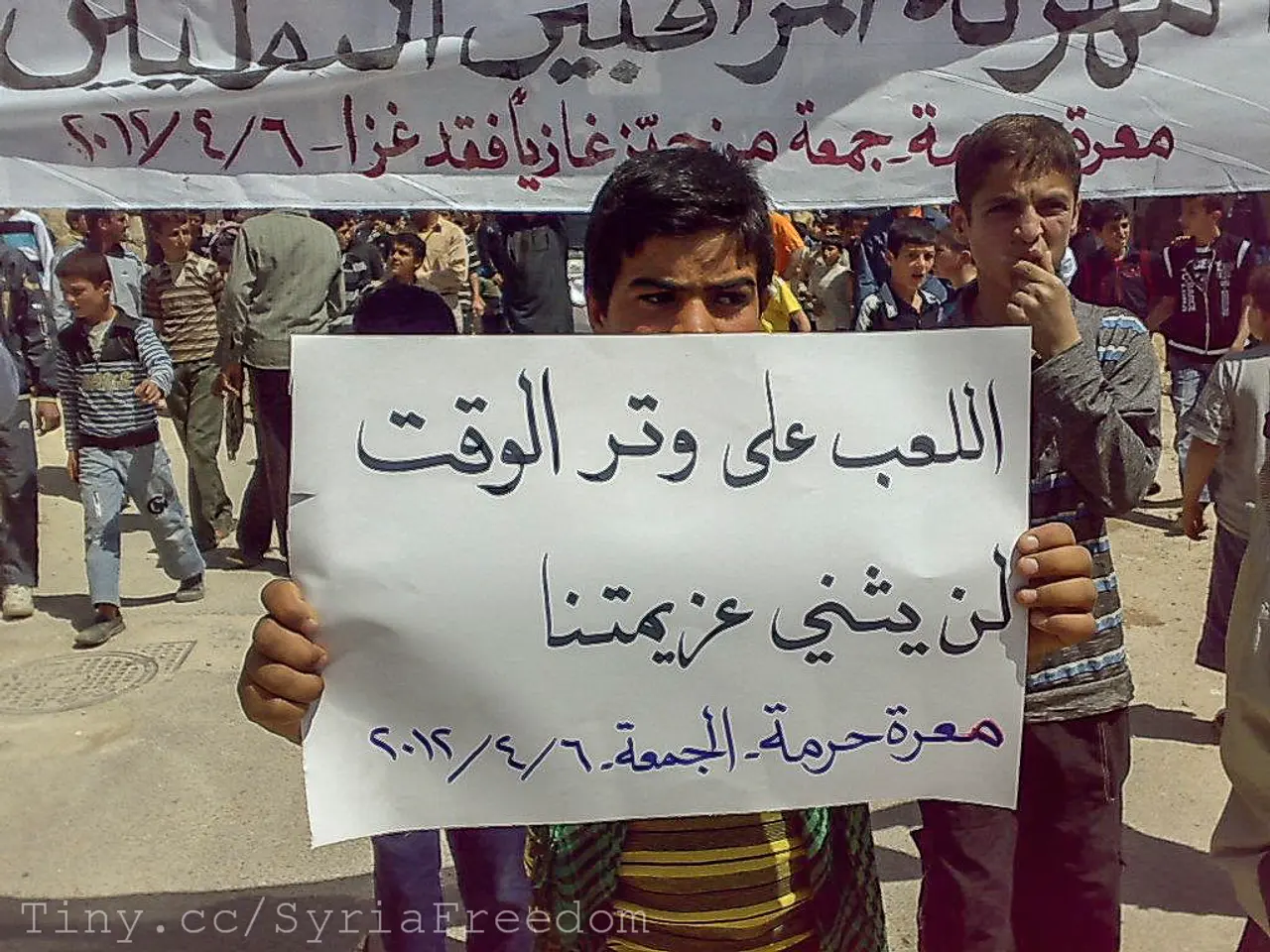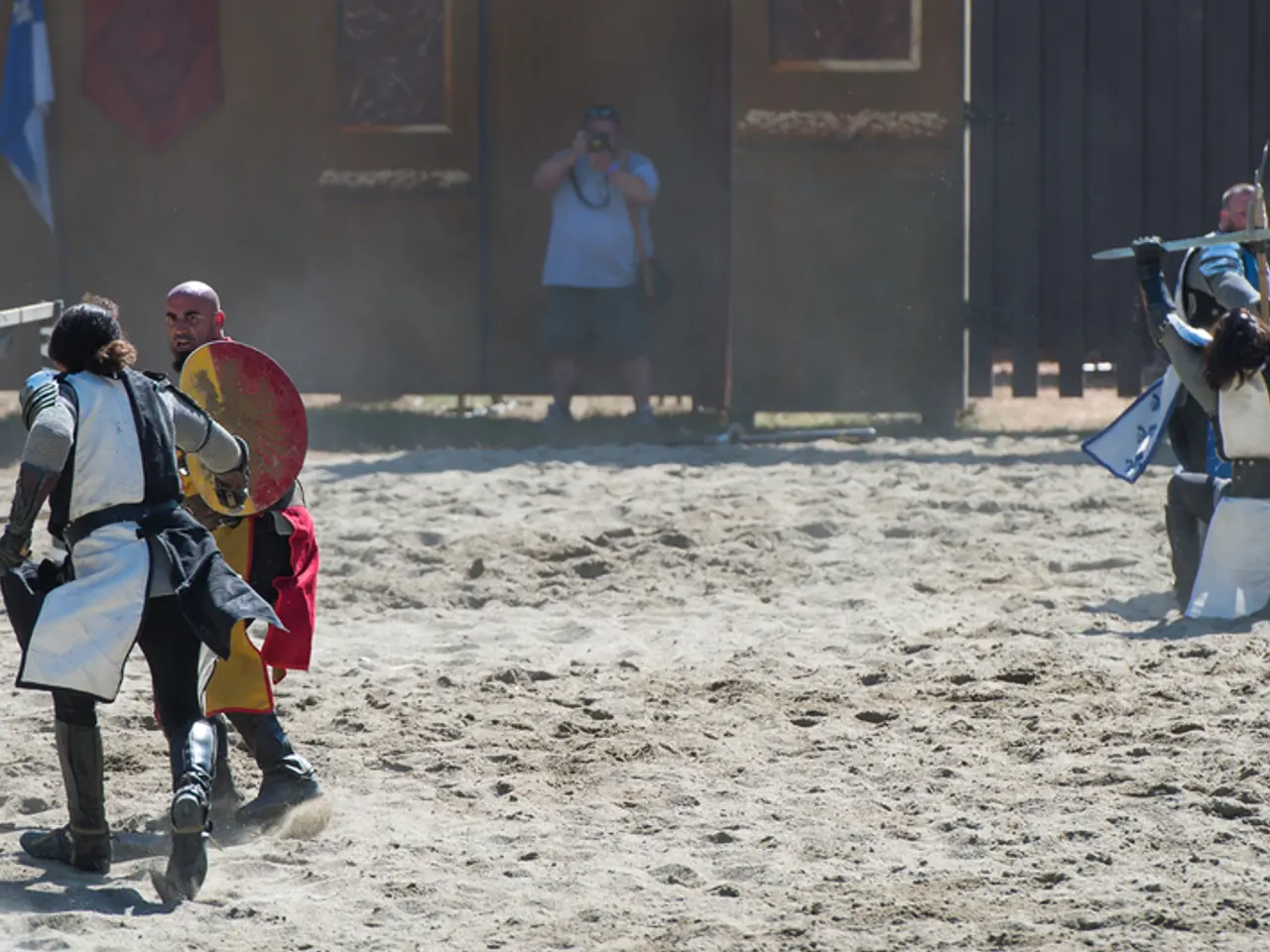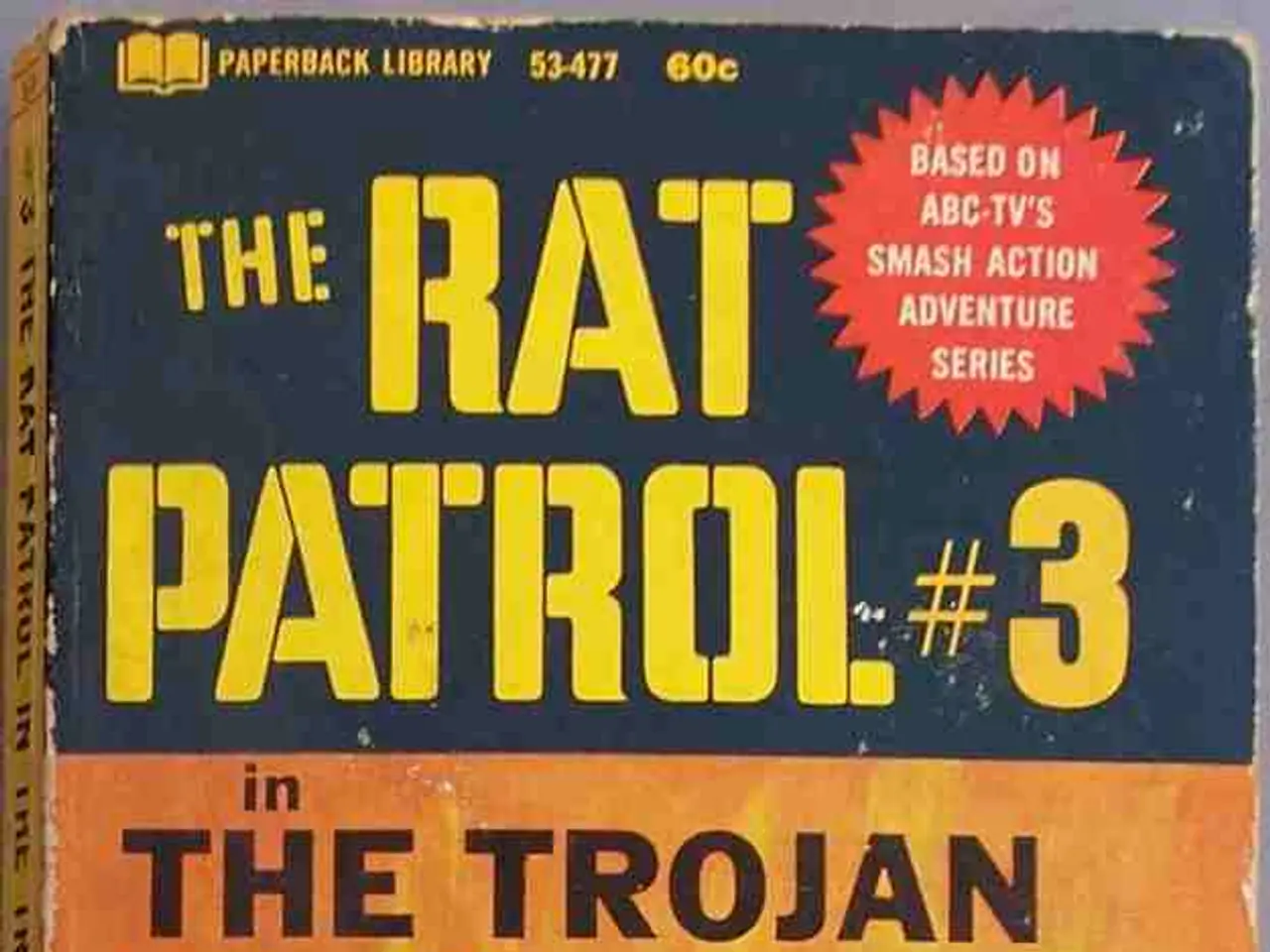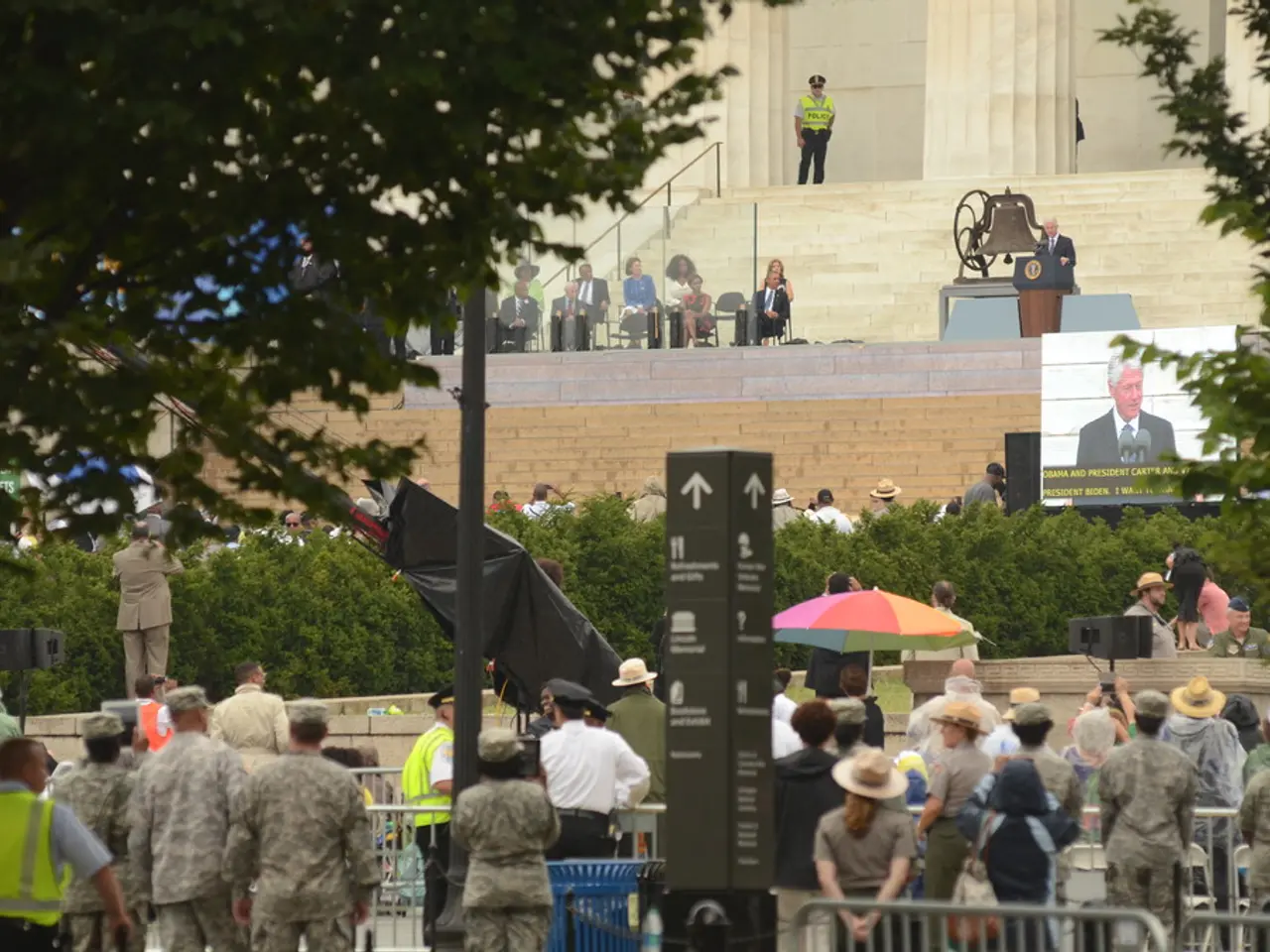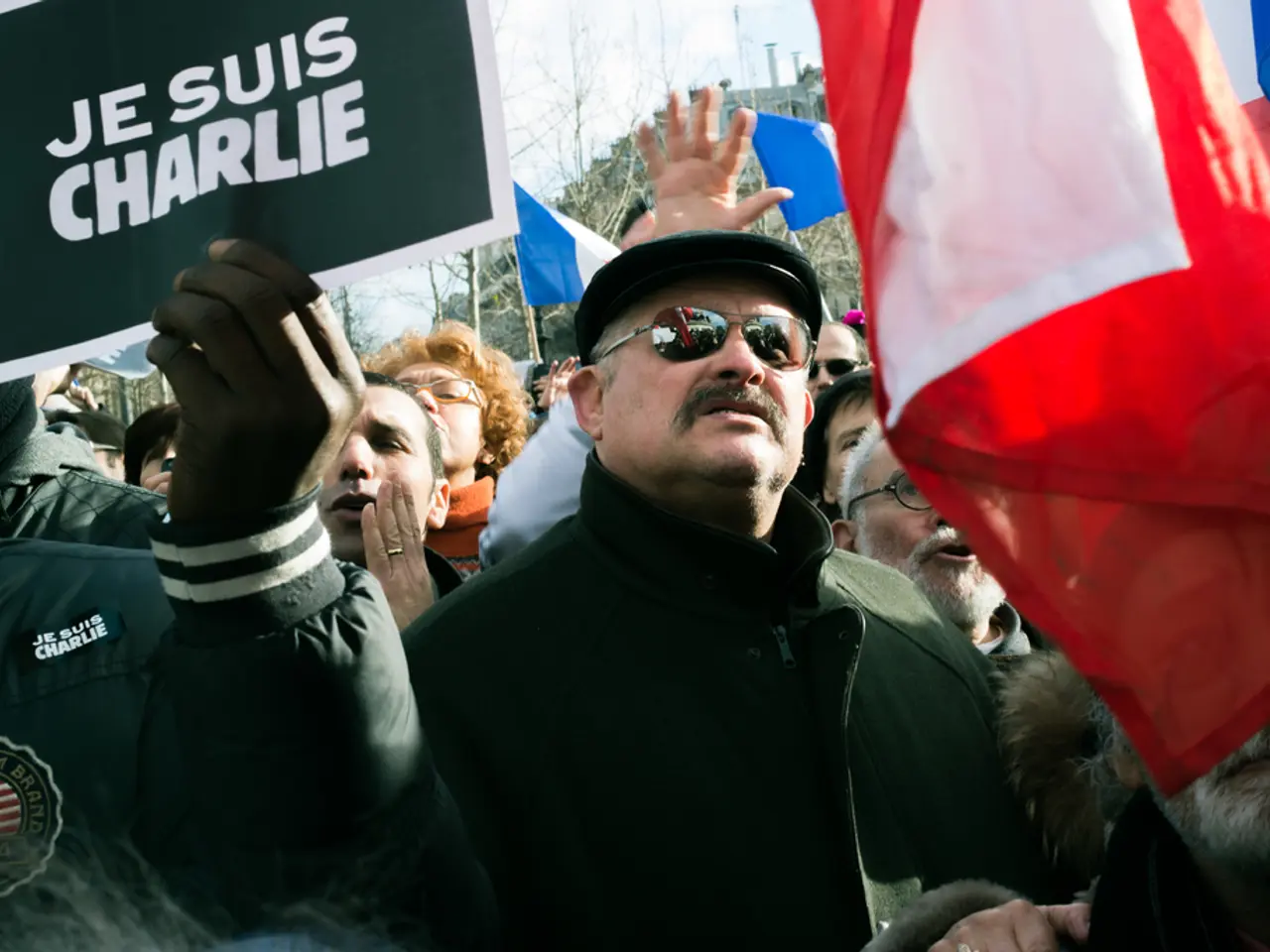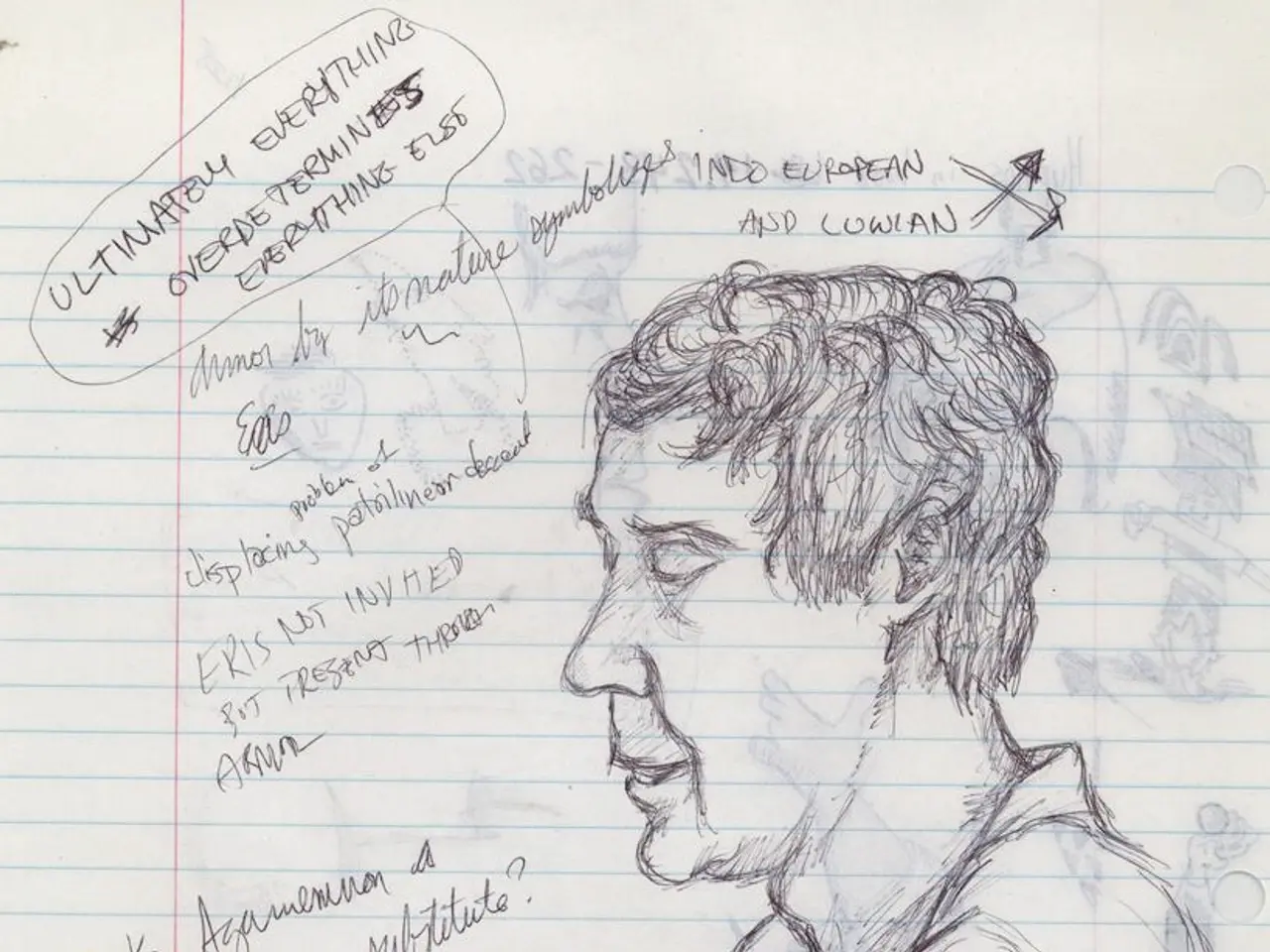"Hundreds apprehended in New York City: Police storm Gaza support camps, uncovering gun possessions amongst youths"
New York City Police Crackdown on Student Protests: A Clash Over Palestine Solidarity
Struggle and outrage are on the rise in New York City as students stand firm against the NYPD, accusing them of violence and repression during the forcible dismantlement of Palestine solidarity encampments at two prestigious universities, Columbia University and City College of New York (CUNY).
On Wednesday, after a night of turmoil, Mayor Eric Adams reported over 300 arrests following the police raids on pro-Palestinian protests on these campuses. Injuries were reported among students and faculty members at both Columbia and CUNY.
By mid-morning on Wednesday, several arrested students were still jailed, awaiting release.
A Tense Standoff at Columbia University
The episode at Columbia University evoked memories of the 1968 anti-Vietnam war protests, with police in riot gear smashing into the school's main campus, breaking up a solidarity encampment for Gaza. The students, in an act of defiance, had named one building "Hind's Hall," in memory of six-year-old Palestinian girl, Hind Rajab, who lost her life in a tragic incident involving Israeli forces earlier this year.
The NYPD's deployment included the use of an armored vehicle, flash grenades, and pepper spray.
The Cuny Encampment Siege
At the same time, on Tuesday night local time, the NYPD entered a similar establishment at CUNY, Manhattan, amidst a pro-Palestinian encampment. Apart from students, this violent intervention left faculty members and media personnel doused in pepper spray.
Eyewitness Accounts and Aftermath
Laith Shalabi, a first-year CUNY law student, recounted the following when detailing his arrest scene on the night of the raid:
"The NYPD entered the encampment shortly after 11pm. They first arrested protesters outside the university, pushing them to the ground and making arrests. It was rough. I watched the scene from within the encampment. As the police moved inside, we locked arms, coordinated, and decided not to resist. I ended up in zip ties for three and a half hours…they were strapped tight. I had to complain seven times before they finally cut them."
The students were served tickets for trespassing and incarcerated in a holding cell. The cell count peaked at 500 inmates.
New Gaza Solidarity Encampments Ignite
Columbia's president, Nemat Minouche Shafik, announced the deployment of police to remain on campus until the end of the academic semester, which earned her professor Nadia Abu El-Hajj's criticism for turning the establishment into "a police state."
By "dangerously overreacting" to appease the Senate and mega-donors, Shafik had jeopardized every student's safety without any consultation with faculty, according to Abu El-Hajj.
The violent police intervention sparked outrage and concerns not just from US lawmakers and Jewish American groups but also from organizations such as IfNotNow. The group called on authorities to cease the violent attacks on protesters and push for peace as opposed to a crackdown.
Congressman Jamaal Bowman from New York echoed similar sentiments, stating, "in no world should our kids be met with guns when using their constitutional right to peacefully assemble."
Meanwhile, the anti-Zionist organization Jewish Voice for Peace described the raid on the student encampment as a stain on Columbia's reputation and called for an end to the university's current complicity in violence and occupation.
The unrest at Columbia University comes amid several other universities protesting Israel's war on Gaza, with the Columbia Gaza solidarity encampment having started on April 17th, when a small group of students set up tents on the university campus. The core goal of these encampments was to demand an end to university complicity in the Israeli occupation and the Israeli war on Gaza through divestment from companies linked to Israel.
Following the NYPD's crackdown on the Columbia encampment, students at Fordham University have announced the launch of their own Gaza solidarity encampment, vowing to continue advocating for Palestinians' cause and pushing universities to take a stand against Israeli occupation and war crimes.
- The tension between students and the NYPD over Palestine solidarity protests has extended to other universities, with students at Fordham University announcing the launch of their own Gaza solidarity encampment.
- Following the NYPD's crackdown on the Columbia encampment, advocacy groups like IfNotNow and Jewish Voice for Peace have expressed concerns and called on authorities to cease violent attacks on protesters, pushing for peace instead.
- The Palestinian solidarity protests at Columbia University have sparked debates in the Middle East news and political spheres, as well as general-news outlets, given the growing number of arrests and use of force by the NYPD.
- The NYPD's handling of Palestine solidarity protests at universities like Columbia University and City College of New York has brought crime-and-justice issues into the spotlight, with eyewitness accounts detailing the use of armored vehicles, flash grenades, and pepper spray during the raids.
